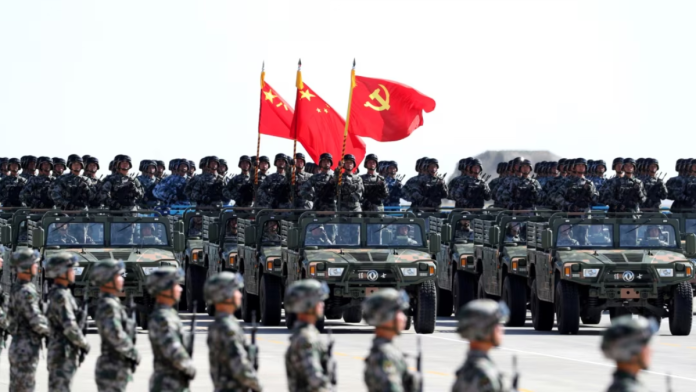China’s military has been growing at a fast pace, especially its nuclear forces. However, behind this growth lies a troubling story — a wide-ranging expel ordered by Chinese leader Xi Jinping. Over the past year, several top generals and defence officials have disappeared, been fired, or faced corruption charges.
The clean-up has deeply affected China’s Rocket Force, the unit responsible for managing its nuclear weapons. Once seen as one of the most powerful and secretive branches of China’s military, it now faces major uncertainty. The shake-up has raised serious questions about how safe and effective China’s expanding nuclear arsenal really is.
China’s leader wants to build a “world-class military” by 2049, the 100th anniversary of the People’s Republic of China. But the removal of senior commanders — including those handpicked by Xi himself — suggests deep problems inside the ranks. The government’s official media has repeatedly said that the fight against corruption is essential to protect the party and the country from instability.
Corruption and loyalty inside the army
When Xi took office in 2012, China’s military already had a poor image. Many senior officers were accused of taking bribes, selling promotions, and using military resources for personal luxury. Some even sold military license plates to civilians so they could escape traffic fines or gain special privileges.
Xi promised to end these practices and make the army more disciplined and loyal to the Communist Party. He believes that the military’s first duty is not to defend the country, but to defend the party’s rule. To achieve that, he started one of the biggest anti-corruption campaigns in Chinese history, removing hundreds of officers and senior leaders.
This effort has continued year after year. Recently, even high-ranking generals who were close to Xi have been caught up in the purge. Among them were leaders responsible for overseeing political discipline and those in charge of commands near Taiwan — the island that China claims as its own territory.
China courts Indian engineers — new K-visa offers escape from U.S. H-1B visa chaos
The troubled Rocket Force and nuclear control
The Rocket Force, which controls most of China’s nuclear missiles, has become the centre of attention. Reports suggest that some of its top officials were involved in serious corruption, including misuse of funds meant for missile construction and testing. There were also reports of fraud related to underground missile silos.
Experts say the Rocket Force’s large budget and secretive operations make it an easy target for corruption. Missiles are rarely tested, and much of the spending goes into projects that are hard to monitor. This makes it difficult to spot wrongdoing until it becomes a major issue.
Despite these problems, China continues to modernize its weapons at a rapid pace. During a military parade this year, Beijing showed off new drones, hypersonic missiles, and long-range intercontinental ballistic missiles (ICBMs). Analysts believe China could almost double its nuclear arsenal by 2030, putting it closer to the United States and Russia in terms of nuclear strength.
Tariffs Alarm Bells Ring as China’s Exports Suddenly Collapse — Weakest Performance in Eight Months
A struggle for control and stability
Xi aims for total control over China’s armed forces. He often warns that the Soviet Union fell because its army stopped obeying the ruling party. For him, absolute loyalty from the military is vital to protect Communist Party rule.
The army’s official newspaper recently called the anti-corruption drive a “major political struggle” tied to the country’s long-term stability. Yet the latest purges show that corruption remains deep within the ranks, even after years of clean-ups.
The problem has now reached the core of China’s nuclear command, raising global concern about its strength and reliability. Despite this, China continues to pour money into advanced weapons like “carrier killer” missiles and hypersonic systems meant to deter the United States.
Xi’s mission to tighten control, fight corruption, and build military power defines his rule — but the ongoing purges reveal deep cracks of distrust inside one of the world’s most powerful forces.


